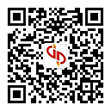For some time past, it has been widely accepted that babies—and other creatures—learn to do things because certain acts lead to “rewards”, there is no reason to doubt that this is true. But it used also to be widely believed that effective rewards, at least in the early time, had to be directly connected to such basic physiological “drives” as thirst or hunger. In other words, a baby would learn if he needed food or drink or some sort of physical comfort, not otherwise.
It is now clear that this is not so. Babies will learn to behave in ways that produce results in the world with no reward except success in sight.
Papousek began his studies by using milk in the normal way to “reward” the babies and so teach them to carry out some movements, such as turning the head to one side or the other. Then he noticed that a baby who had had enough to drink would refuse the milk but would still go on making, the learned response with clear signs of pleasure. So he began to study the children‘s responses in situations where no milk was provided. He quickly found that children as young as four months would learn to turn their heads to right or left if the movement “turned on” some lights—and indeed that they were able to learn some more turns to bring about this result, for example, two left or two right, or even to make as many as three turns to one side.
Papousek‘ s light experiment was placed directly in front of the babies and he made the interesting observation that sometimes they would not turn back to watch the light closely although they would “smile and speak” when the light was on. Papousek concluded that it was not the sight of the lights which pleased them. It was the success they were achieving in solving the problem, in mastering the skill, and then there is a basic human nature to make sense of the world and bring it under control.
[单选题]
A. will satisfy their surprise
B. will meet their physical needs
C. are directly connected to pleasure
D. will bring them a feeling of success
[单选题]
A. would make learned responses when it saw the milk
B. would continue the simple movements without being given milk
C. would turn its head to right or left when it had enough to drink
D. would carry out learned movements when it had enough to drink
[单选题]
A. they succeeded in “turning on” the lights
B. the sight of lights was interesting
C. they need not turn back to watch the lights
D. the lights were directly connected to some basic “drives”

 原创试题专区
原创试题专区 开通学校服务
开通学校服务





